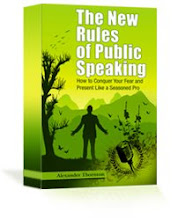How's Your Creative Writing Coming Along?

Hi how's your creative writing coming along, are the words flowing freely?
Inspired perhaps by an imagination so vivid, so unbelievably active that page after effortless page you become an unrelenting yet oh so willing slave to your talent
Oblivious to the world, you are on the ultimate adrenaline overload as your writing, yes your writing begins to excite and stimulate you like never before?
Thought not!
Sounds too good to be true doesn't it.... until you try.
The only limitation is your own imagination!

Here at The importance of words we
are constantly searching for useful,
informative, thought provoking and
'Well Constructed' articles
Here is a perfect example;
Followed by.... you've guessed it!... more
Irresistable Phrases

How To Write Non-fiction That Sells ... by Louise Dop
Nothing turns a reader off more quickly than a list of dry facts and figures. Good fiction writers always show rather than tell but it’s worth remembering that the technique can work for non-fiction too. Follow this advice and your articles will make compulsive reading.
When writing general interest material, often you can’t avoid dealing in numbers. How big? How heavy? How many miles?
To help the reader to absorb this information, why not make it more enticing? I could tell you that a dripping tap can waste 1,800 litres of water per month but wouldn’t you be more amazed to learn that this is equivalent to twelve full baths?
When you do quantify your data, choose the appropriate units of measurement.
While a contemporary (or European) audience will appreciate the fact that the largest recorded snake, an Indonesian reticulated python, measured 10 metres long, the over sixties market might be more impressed by its length of 32 feet and nine and a half inches. In certain cases you could even decide to leave the measurements out all together –
“the record breaking snake stretched further than five tall men lying head to toe!”
Write about the past using dates and well known events to put the information into a historical context. The birth of your subject in 1620 may not mean much to readers. Point out that he was working in London at the time of the Great Fire of London in 1666 and the day to day reality of his life comes into focus.
Timescales are another handy tool, especially for illustrating the effort involved in great human achievement. Most people know that Sir Christopher Wren was responsible for the beauty of St. Paul’s cathedral in London. The fact that the building took over 35 years to complete emphasises the enormity of his vision.
Human interest sells so be prepared to use it.
Interview real people and let them build up your topic.
Direct quotes uplift a feature in the way that dialogue enlivens fiction.
Give your spokesmen character.
While you might not take the tabloid route of “busty blue-eyed twenty something”, readers will gain insight on learning that a quote came from a forty two year old nurse with six children or a silverware expert from Colchester.
Don’t forget to humanise dusty historical figures with personal details. The scientifically minded can appreciate Sir Isaac Newton’s grasp of gravitational forces. Who can resist the suggestion that when engrossed in a challenging problem he sometimes forgot to get out of bed for days at a time?
Travel writing is one area that requires hard facts but these can best be supplied using fact boxes (known as sidebars). The heart of the article should concentrate on bringing the destination directly to the audience.
Use all of your senses to report on the surroundings and remember that every detail counts.
Prospective travellers will want to know that baths in the hotel are dirty or that Spiro’s restaurant serves the juiciest kebabs. Add dialogue to the mix with a few local phrases spoken by well defined characters.
Travel writing is your chance to be creative as skilful imagery will capture the scenery but beware of clichés. Rather than “the sun went down like a fiery red ball”, try “the sunset spread across the clouds like spilt wine over crisp linen.”
Marketable non-fiction is tight on word count and heavy on facts. Add value to a piece by referencing further sources of information. A list of relevant books, websites, stores, addresses or telephone numbers doesn’t take up much space but gives your article depth and keeps the reader thinking about the subject long after they’ve reached the last sentence.
The work is also more likely to be retained for future reference – a plus point for the publisher.
If you apply these principles to your non-fiction writing, it won’t only be readers who can’t put it down - editors will be hooked too.
Louise Dop is a successful freelance writer and technical author. Her ebook, The Writer's Secret Weapon, brings together a collection of the best free online resources for writers and gives an insight into the writing life. With over 50 direct links to resources, this straightforward guide will show you the real-life tips and tricks that – armed with an Internet connection and basic computer literacy – you can try for yourself right away. http://www.clearlywrite.co.uk
Article Source: http://EzineArticles.com/?expert=Louise_Dop

A habit of riding a theory too hard
A habit of rigorous definition
A happy and compensating experience
A haughty self-assertion of equality
A hideous absurdity
A hideous orgy of massacre and outrage
A high pitch of eloquence
A homelike and festive aspect
A hopeless enigma
A hotbed of disturbance
A hushed rustle of applause testified to a widespread approbation[approbation = warm approval; praise]
A keenly receptive and intensely sensitive temperament
A kind of fantastic patchwork
A kind of surly reluctance
A laudable stimulus
A law of retributive justice
A less revolutionary innovation
A life of studious contemplation
A limpidity and lucidity of style[limpidity = transparent clearity; easily intelligible]
A lingering tinge of admiration
A lively sense of what is dishonorable
A long accumulating store of discontent and unrest
A long tangle of unavoidable detail
A look threatening and peremptory[peremptory = ending all debate or action]
A many-sided and far-reaching enthusiasm
A marvelous sharpener of the faculties
A melancholy preponderance of mischief
A memory-haunting phrase
A mercenary marriage
A mere conjectural estimate
A microscopic care in the search of words
A misconception which is singularly prevalent
A mixture of malignancy and madness
A modicum of truth
A monstrous travesty
A mood of hard skepticism
A more than ordinary share of baseness and depravity
A most laudable zeal
A most repulsive and incomprehensible idiom
A most unseasonable piece of impertinence
A multitude of groundless alarms
A murderous tenacity about trifles
A mysterious and an intractable pestilence
A mysterious and inscrutable power
A narrow and superficial survey
A nature somewhat frivolous and irresolute
A needlessly offensive manner
A nimble interchange of uninteresting gossip
A noble and puissant nation [puissant = with power, might]
A novel and perplexing course
A numerous company
A painful and disconcerting deformity
A partial disenchantment
A passage of extraordinary daring
A patchwork of compromises
A permanent and habitual state of mind
A pernicious and growing tendency
A perversion of judgment
A phantom of the brain
A piece of grotesque stupidity
A pleasant flow of appropriate language
A pompous failure
A potential menace to life
A powerful and persuasive orator
A prevalent characteristic of her nature
A prey to the tongue of the public
A pristine vigor of style
A profusion of compliments
A proposition inherently vicious
A puerile illusion [puerile = immature; childish]
A quenchless thirst for expression
A rage akin to frenzy
A rare precision of insight
A rather desperate procedure
A reckless fashion
A recrudescence of superstition[recrudescence = recurrence of a pathologicalsymptoms after a period of improvement]
A relish for the sublime
A reversion to the boldest paganism
A rigid avoidance of extravagance and excess
A ripple of applause
A restraining and conservative force
A robust and consistent application













